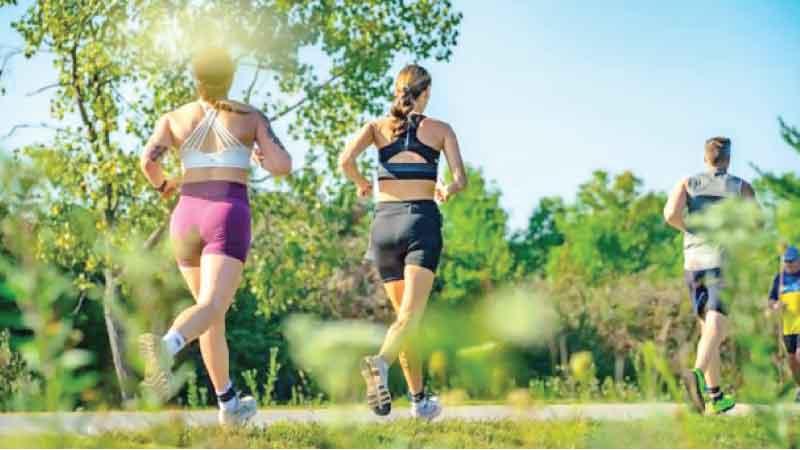New data show that nearly one-third (31percent) of adults worldwide, approximately 1.8 billion people, did not meet the recommended levels of physical activity in 2022. The findings point to a worrying trend of physical inactivity among adults, which has increased by about 5 percentage points between 2010 and 2022.
If the trend continues, levels of inactivity are projected to further rise to 35 percent by 2030, and the world is currently off track from meeting the global target to reduce physical inactivity by 2030. The World Health Organization (WHO) recommends that adults have 150 minutes of moderate-intensity, or 75 minutes of vigorous-intensity physical activity, or equivalent, per week. Physical inactivity puts adults at greater risk of cardiovascular diseases such as heart attacks and strokes, type 2 diabetes, dementia and cancers such as breast and colon.
 The study was undertaken by researchers from WHO together with academic colleagues and published in The Lancet Global Health journal.
The study was undertaken by researchers from WHO together with academic colleagues and published in The Lancet Global Health journal.
New findings
“These new findings highlight a lost opportunity to reduce cancer and heart disease, and improve mental health and well-being through increased physical activity,” said Dr Tedros Adhanom Ghebreyesus, WHO Director-General. “We must renew our commitment to increasing levels of physical activity and prioritising bold action, including strengthened policies and increased funding, to reverse this worrying trend.”
The highest rates of physical inactivity were observed in the high-income Asia Pacific region (48%) and South Asia (45%), with levels of inactivity in other regions ranging from 28% in high-income Western countries to 14% in Oceania.
Of concern, disparities remain between gender and age. Physical inactivity is still more common among women globally compared with men, with inactivity rates of 34% compared to 29 percent. In some countries, this difference is as much as 20 percentage points. People over 60 are less active than other adults, underscoring the importance of promoting physical activity for older adults.
“Physical inactivity is a silent threat to global health, contributing significantly to the burden of chronic diseases,” said Dr Rüdiger Krech, Director of Health Promotion at WHO.
“We need to find innovative ways to motivate people to be more active, considering factors like age, environment, and cultural background. By making physical activity accessible, affordable, and enjoyable for all, we can significantly reduce the risk of noncommunicable diseases and create a population that is healthier and more productive.”
Despite the worrying results, there are some signs of improvement in some countries. The study showed that almost half of the world’s countries have made some improvements over the past decade, and 22 countries were identified as likely to reach the global target of reducing inactivity by 15% by 2030, if their trend continues at the same pace.
In light of these findings, WHO is calling on countries to strengthen their policy implementation to promote and enable physical activity through grassroots and community sport and active recreation and transport (walking, cycling and use of public transport), among other measures.
Worrying trend
“These new findings highlight a lost opportunity to reduce cancer and heart disease, and improve mental health and well-being through increased physical activity,” said Dr Tedros Adhanom Ghebreyesus, WHO Director-General. “We must renew our commitment to increasing levels of physical activity and prioritising bold action, including strengthened policies and increased funding, to reverse this worrying trend.”
“Promoting physical activity goes beyond promoting individual lifestyle choice – it will require a whole-of-society approach and creating environments that make it easier and safer for everyone to be more active in ways they enjoy to reap the many health benefits of regular physical activity,” said Dr Fiona Bull, Head of the WHO Unit for Physical Activity.
Collective efforts based on partnerships between government and nongovernmental stakeholders and increased investments in innovative approaches will be needed to reach the least active people and to reduce inequalities in access to measures promoting and improving physical activity.









